During the past 2 days I have done some new bechmark tests trying to find out the best performant NVMe driver for
a) my AMD X570 chipset PCIe 4.0 system using a 1TB Samsung 990 Pro SSD as system drive and
b) my old Intel Z170 chipset PCIe 3.0 system using a 1 TB Samsung 980 Pro SSD as system drive.
OS for both configurations: Win11 x64 version 22H2 Build 22621.1343
These were the tested NVMe drivers:
- Microsoft’s generic Win11 in-box NVMe driver v10.0.22621.755 dated 10/19/2022
- Samsung’s latest NVMe driver v3.3.0.2003 WHQL dated 01/21/2020 (forced installation)
- Phison’s latest generic NVMe driver v1.5.0.0 WHQL dated 02/23/2018
- Micron’s latest NVMe driver v2.1.19.0 WHQL dated 08/03/2021 (forced installation)
- Intel’s latest RST NVMe driver v17.11.3.1010 WHQL dated 11/25/2022 (forced installation)
- Intel’s latest “pure” NVMe driver v5.3.0.1010 WHQL dated 10/19/2022 (forced installation)
A. Test results with my AMD X570 chipset system
Here are the related screenshots:
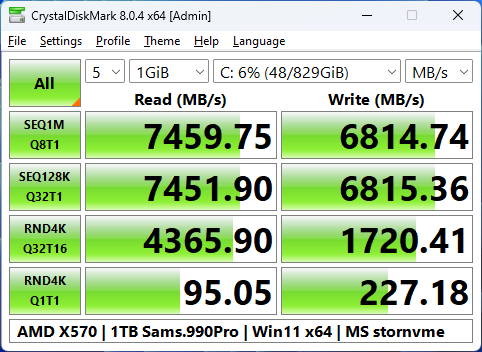
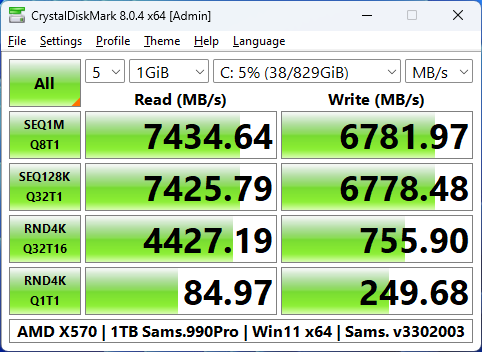
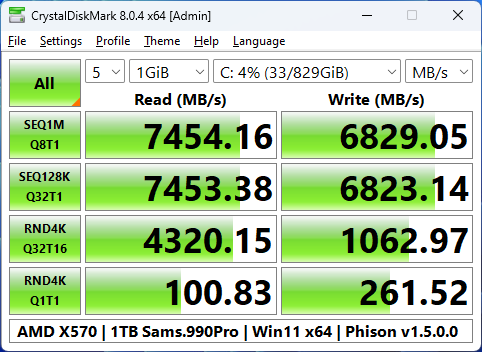
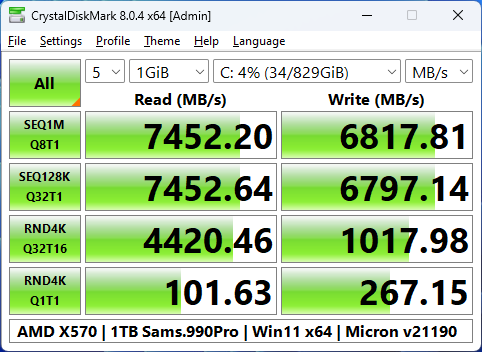
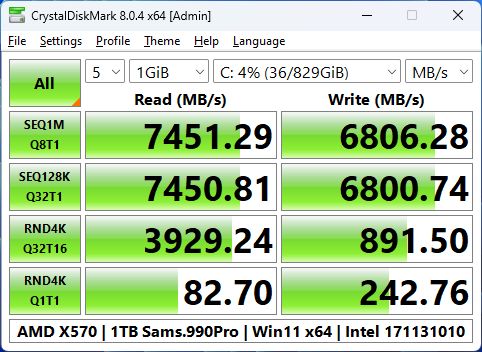
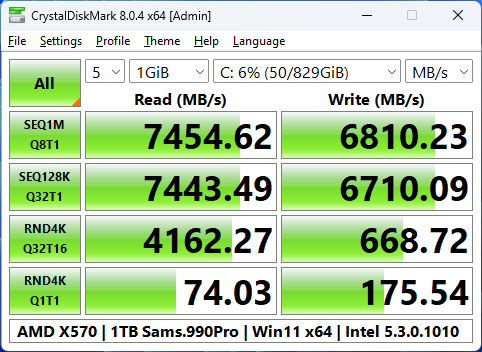
Evaluation of the results with my AMD chipset system:
- All tested NVMe drivers worked extremely performant with a Samsung 990 Pro SSD.
- Only the Random Access read/write numbers (undermost 2 lines) were quite different.
-
My winner: The generic Win11 in-box MS NVMe driver (outstanding RND4K Q32T16 Write numbers!).
B. Test results with my Intel Z170 chipset system
Here are the related screenshots:
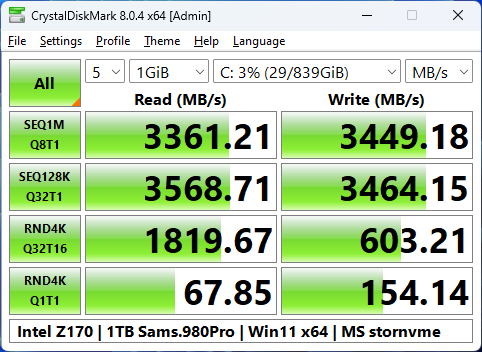
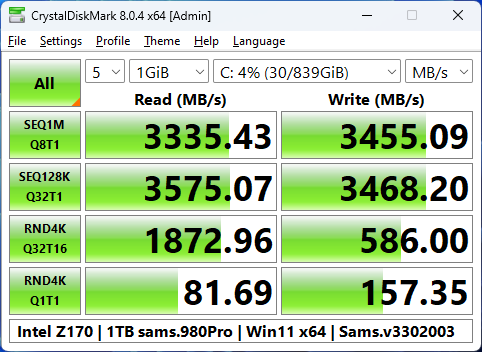
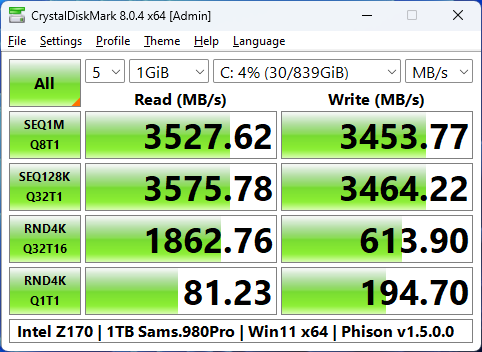
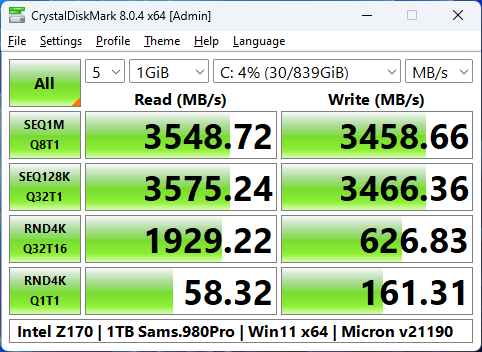
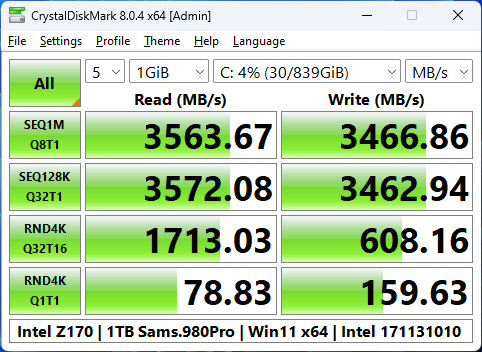
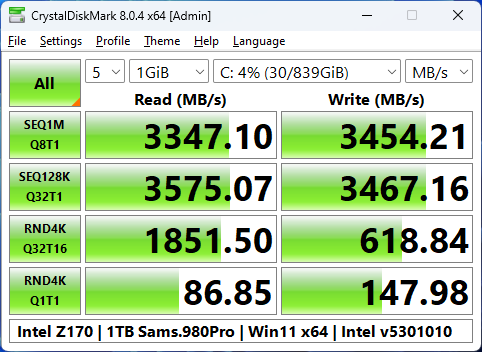
Evaluation of the results with my Intel chipset system:
- All tested NVMe drivers worked fine with my Intel Z170 chipset and a Samsung 980 Pro SSD.
- The benchmark results were quite similar with all tested NVMe drivers.
- My personal favorite: Phison’s NVMe driver v1.5.0.0 (best RND4K Q1T1 scores)
Summary:
There is no NVMe driver available, which is the best for all systems!
My advice: Find it out yourself by doing a benchmark comparison (after having set a “Restore Point”).